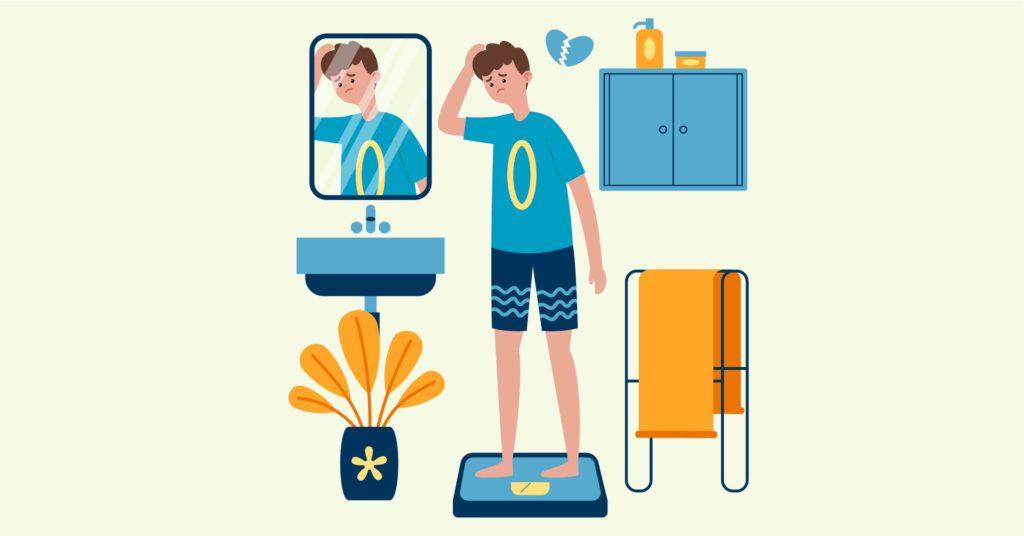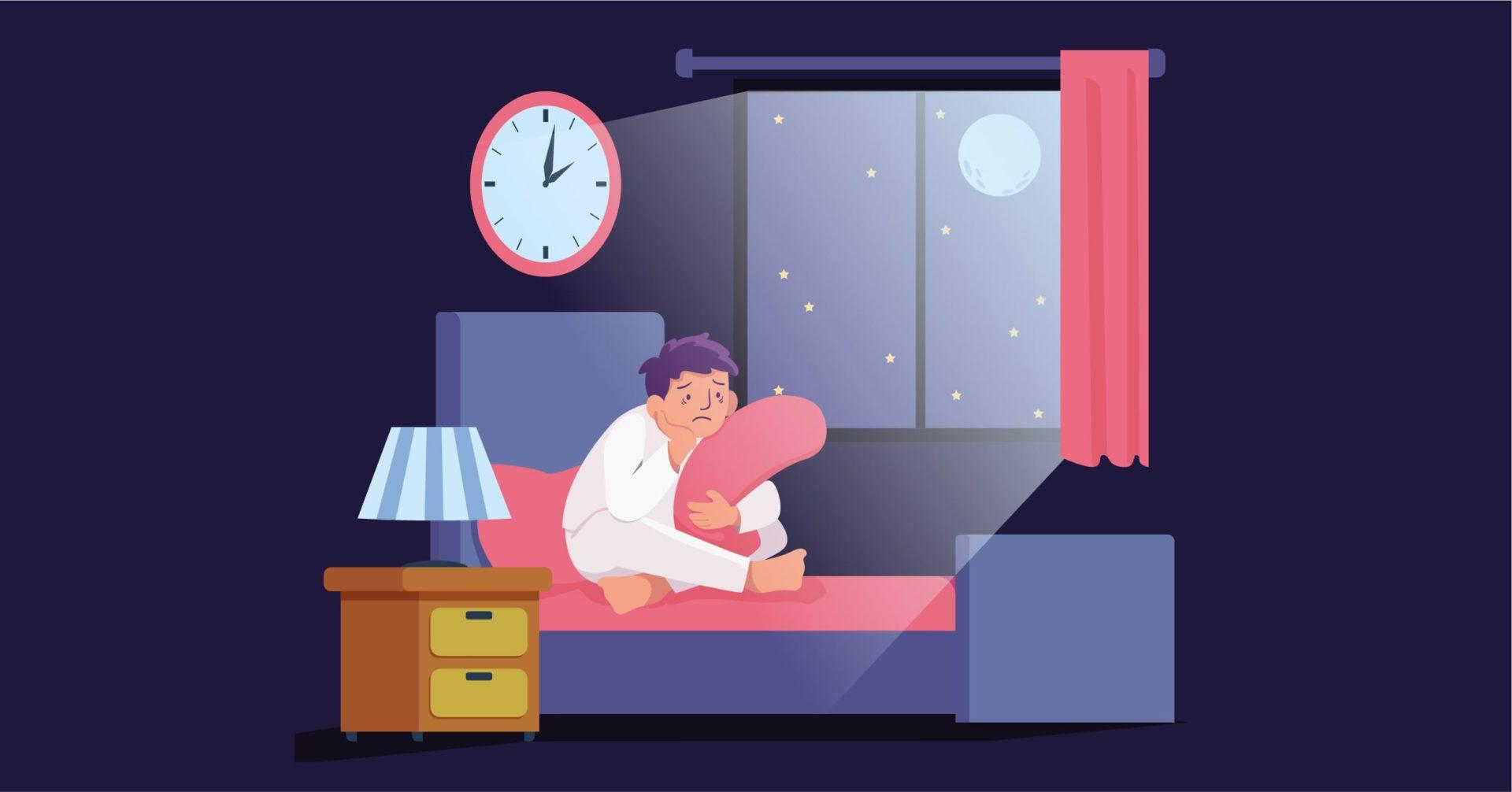Overview
Rumination Disorder involves the symptomatic regurgitation of food during or soon after its consumption. This regurgitation is not purposefully carried out, and can cause functional damage, including unintentional weight loss, malnutrition, psychological distress, and impaired social functioning.
The data on the epidemiology of Rumination Disorder is scarce, and most literature regarding its aetiological factors remain inconclusive as well. Physiological, environmental, and psychological factors have been associated with the occurrence of the disorder.
The first line of treatment for Rumination Disorder involves behavioral therapy, with diaphragmatic breathing exercises as the mainstay of management. While pharmacological and even surgical modes of treatment are available, they are taken into consideration if the symptoms are resistant to behavioral therapy.
Signs and Symptoms
The signs and symptoms of Rumination Disorder include:
- Swallowed or partially digested food being brought back up to the mouth (without feelings of nausea or disgust)
- Re-chewing and swallowing or spitting out regurgitated food
- Unexpected or unintended weight loss
- Malnutrition
- Avoiding eating
Risk Factors
There is a paucity of epidemiological data on Rumination Disorder, and the disorder is considered to be rare. Data on sex prevalence is inconsistent, with a female preponderance being observed in some studies, but not all.
It is likely that the disorder is under-diagnosed, or confused with gastrointestinal issues or eating disorders. The disorder can be observed between infancy to adulthood.
The aetiology of Rumination Disorder is unclear. While a combination of abdominal pressure and negative intrathoracic pressure is considered to lead to the regurgitation of food, the potential cause of this activity is subject to considerable speculation.
The self-soothing nature of the activity of regurgitation has led to theories based in learning, which hypothesize that a feeling of relief after the rumination behavior leads to positive reinforcement and therefore continuation of the behavior.
Environmental conditions such as external undesirable feelings anxiety, depression, lack of stimulation, and stress have also been hypothesized as potential causative factors. In children and adolescents, negative parenting styles may also play a role.
There is some prevalence of the disorder among individuals with intellectual and neurodevelopmental disabilities. There is also a comorbidity of Rumination Disorder with other mental disorders, such as Generalized Anxiety Disorder.
Diagnosis
Thorough clinical assessments, including detailed clinical histories, are necessary in order to diagnose Rumination Disorder. An HRIM (High Resolution Impedance Manometry) test, which measures pressure and movement in the oesophagus, is preferred in order to rule out differential diagnoses.
A behavioral observation may be carried out, wherein the clinician observes the eating pattern in order to confirm the diagnosis.
Due to the symptomatic similarities between Rumination Disorder and other gastrointestinal disorders, there is a possibility of misdiagnosis, and in many cases the diagnostic process tends to be very long, tedious, and expensive, due in part to extensive testing undertaken to rule out other diagnoses.
The DSM-5 lists the following criteria for the diagnosis of Rumination Disorder:
- Repeated regurgitation of food over a period of at least 1 month. Regurgitated food may be re-chewed, re-swallowed, or spit out.
- The repeated regurgitation is not attributable to an associated gastrointestinal or other medical condition (e.g., gastroesophageal reflux, pyloric stenosis).
- The eating disturbance does not occur exclusively during the course of anorexia nervosa, bulimia nervosa, binge-eating disorder, or avoidant/restrictive food intake disorder.
- If the symptoms occur in the context of another mental disorder (e.g., intellectual disability [Intellectual developmental disorder] or another neurodevelopmental disorder), they are sufficiently severe to warrant additional clinical attention.
While the DSM-5 recommends carrying out laboratory and physical testing in order to rule out gastrointestinal testing even after a thorough clinical history has been taken, the need for the same is disputed due to the monetary burden and potential distress that could be caused to the patient. The ROME-IV, which also outlines criteria for diagnosis, points out that testing to eliminate organic causes is typically unnecessary.
Treatment
Management options for Rumination Disorder can be broadly divided into medical and behavioral components, with a combination of the two being implemented for effective treatment.
Imparting adequate information about the disorder is highly important, and counselling and CBT (Cognitive Behavioral Therapy) may alleviate psychological distress caused by symptoms, as well as deal with any psychological factors that lead to the maintenance of regurgitation behavior.
Diaphragmatic breathing exercises, which involve coordinated respiration in order to change the cycle of abdominal contraction to relieve pressure may help to stop regurgitation.
The use of instruments such as electromyography machines or oesophageal manometry can aid the process by displaying the abnormalities in muscle function, thereby helping the patient to correct it accurately.
The use of baclofen, a muscle relaxant, has shown some efficacy in the treatment of Rumination Disorder. In cases that are observed to be resistant to treatment via both behavioral therapy and pharmacotherapy, the final line of treatment involves a surgical method known as a fundoplication, a procedure to strengthen the lower esophageal sphincter by sewing the top curve of the stomach around the oesophagus.
Differential Diagnosis
1. Gastrointestinal conditions: It is important to differentiate regurgitation in rumination disorder from other conditions such as gastroparesis, pyloric stenosis, hiatal hernia, and Sandifer syndrome in infants. These should be ruled out by appropriate physical examinations and laboratory tests.
2. Anorexia nervosa and bulimia nervosa: Individuals with anorexia nervosa and bulimia nervosa may also engage in regurgitation with spitting out of food as a means of disposing the ingested calories because of concerns about weight gain.
Comorbidity
Regurgitation with associated rumination can occur in the context of a medical condition or another mental disorder. Rumination disorder is appropriate only when the severity of the disturbance exceeds that routinely associated with such conditions.
Specialist
Depending on the patient, the health practitioners involved could be physicians, gastroenterologists, paediatricians, or psychologists. Individuals may be referred to behavioral health specialists if there is a lack of improvement even after the implementation of diaphragmatic breathing exercises.
In Conclusion
Infants and others with developmental problems have long been recognized to experience the condition. The fact that the illness can affect children, teenagers, and adults shows that it is not age-related.
People who suffer from anxiety, depression, or other psychiatric conditions are more prone to developing rumination syndrome.
This disorder can also affect the social life and mental health of the person. Rumination syndrome, if left untreated, can harm the tube connecting your mouth and stomach (esophagus).
In addition, rumination syndrome can result in harmful weight loss, malnutrition, tooth erosive, poor breath, embarrassment, and social exclusion.
Book a session with us today.





